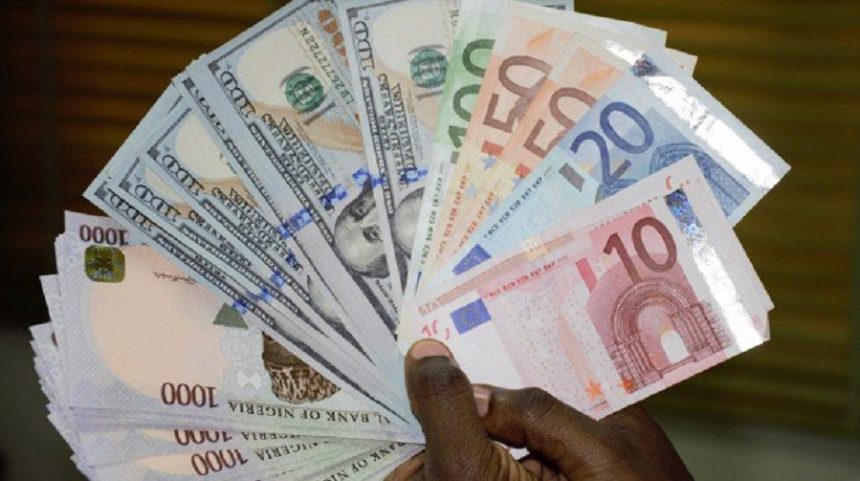The Nigerian naira has depreciated further, reaching a new low of N1,700 per dollar in the parallel market on October 14, 2024, according to Bureau de Change operators.
This marks a 0.29% decline from the previous rate of N1,695/$1, recorded just days earlier on October 11.
Despite rising global crude oil prices, now exceeding $80 per barrel, the naira continues to face significant pressure. In contrast, the currency remained relatively stable in the Investors and Exporters (I&E) window, closing at N1,641.27/$1, although this still represents a 1.14% depreciation from its previous rate of N1,622.57/$1.
The naira has seen sustained devaluation throughout 2024, losing over 50% of its value since January, when it traded at N907.11/$1. Notable declines include a record low of N1,616.53/$1 in February, followed by a brief recovery to N1,303/$1 in March, before its current slide to N1,700/$1 in October.

By the end of September, the naira was trading at N1,668.97/$1, with its continued weakening indicating mounting concerns over Nigeria’s foreign exchange system.
Key Data Points:
- Parallel Market: The naira dropped from N1,695/$1 to N1,700/$1 on October 14, marking a 0.29% decrease.
- I&E Window: On October 11, the naira closed at N1,641.27/$1, down 1.15% from the previous day’s rate of N1,622.57/$1. The currency fluctuated significantly, reaching a high of N1,675.00/$1 and a low of N1,591.00/$1.
- Trading Volume: Market activity surged in the I&E window, with trading volumes hitting $616.73 million, up from $145.56 million the day before, reflecting heightened demand for the dollar.
The depreciation is driven by several macroeconomic factors, including persistent dollar shortages, inflation, and Nigeria’s reliance on the parallel market for foreign exchange. Although oil prices have risen, providing some economic relief, the naira remains under significant pressure.
Furthermore, Nigerian crude oil is still trading above $80 per barrel, and recent policy decisions, such as allowing marketers to source fuel from local refineries like Dangote’s, could help ease some of the currency pressures.
Outlook
While the naira’s breach of the N1,700/$1 mark raises concerns, there is potential for short-term recovery. If global oil prices continue to rise and new economic policies aimed at curbing foreign exchange demand prove effective, the naira could recover to the N1,600/$1 range in the coming weeks. However, the broader macroeconomic environment, including inflation and foreign currency supply, will play a crucial role in determining the currency’s future trajectory.
Effective policy responses will be essential to stabilizing the naira and preventing further depreciation.



